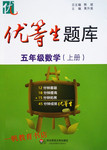题目内容
In the future your automobile will run on water instead of gas! You will be able to buy a supercomputer that fits in your pocket! You might even drive a flying car!
Not all past predictions have been proved wrong. A few of them have been surprisingly accurate (正确无误). Some great thinkers predicted the arrival of the credit card, the fax machine and even the internet years before they happened. But for each prediction that has come true, some others have missed by a mile. Many of these predictions didn’t consider how people would want to use the technology or if people really needed it in their lives or not. Let’s look at some predictions from the not-too-distant past.
Robot Helpers
Where’s the robot in my kitchen? Nowhere, of course. And he’s probably not coming anytime soon. Robots do exist today, but mostly in factories and other working environments.
Back in the 1950s, however, people said that by now personal robots would be in most people’s homes.
So why hasn’t happened? Maybe because robots are still too expensive and clumsy(笨拙的). And probably the idea of robots cooking our dinners and washing our clothes is just too strange. At home we seem to be doing fine without them.
Telephones of tomorrow?
In 1964 an American company introduced the video telephone. They said by the year 2000 most people would have a video phone in their homes. But of course the idea hasn’t caught on yet.
Why? The technology worked fine, but it overlooked (忽略) something obvious: people desire for privacy. Would you want to have a video phone conversation with someone after you just stepped out of the shower?
Probably not — it could be uncomfortable! Just because technology doesn’t always mean people will want to use it.
And finally, how about that crazy prediction of the flying car? It’s not so crazy any more! But a flying car remains one of the most wonderful technology ideas to catch our imagination. Keep watching the news or perhaps the sky outside your window to see what the future will bring.
1. The passage mainly deals with______.
A. predictions that can catch our imagination
B. predictions that haven’t come true
C. new technology can benefit our life
D. predictions that have come true
2. According to the passage, which of the following statements is NOT true?
A. Technology doesn’t always mean people will want to use it.
B. Predictions don’t need to consider people’s practical use of the technology.
C. Not all the high-tech things people thought we’d be using by now are widely used.
D. High-tech things are not always convenient to people’s life.
3. Robot Helpers haven’t been used in most people’s homes because ______.
A. using the kind of robots at home is simply a waste of time and money
B. the kind of robots hasn’t been developed yet
C. people find it difficult to control the kind of robots
D. the kind of robots won’t bring people practical use
4. How does the writer find the flying car?
A. It is too difficult to imagine. B. It is too crazy an idea to realize.
C. It is likely to appear in the future. D. It has been the focus of the news.
小题1:B
小题2:B
小题3:D
小题4:C
略

练习册系列答案
 优等生题库系列答案
优等生题库系列答案 53天天练系列答案
53天天练系列答案
相关题目
 omes. They think that they are left in the (36) of strangers for the rest of their lives. Their (37) children visit them only occasionally, but more often, they do not have any (38) visitors. They live a lonely life without anyone’s care. The truth is that this idea is an unfortunate myth and (39) story. In fact, family members provide over 80 percent of such care (40) elderly people need. They are still living in a familiar family. Samuel Prestoon, a sociologist, studied (41) the American family is changing. He reported that by the time the (42) American couple reaches 40 years of age, they have more parents than children. However, because people today live longer after an illness than people did years (43) , family members must provide long term care. We know, people need company, (44) the elderly people.
omes. They think that they are left in the (36) of strangers for the rest of their lives. Their (37) children visit them only occasionally, but more often, they do not have any (38) visitors. They live a lonely life without anyone’s care. The truth is that this idea is an unfortunate myth and (39) story. In fact, family members provide over 80 percent of such care (40) elderly people need. They are still living in a familiar family. Samuel Prestoon, a sociologist, studied (41) the American family is changing. He reported that by the time the (42) American couple reaches 40 years of age, they have more parents than children. However, because people today live longer after an illness than people did years (43) , family members must provide long term care. We know, people need company, (44) the elderly people. .
. T-shirt and then shouted, "Are they wet enough now?"
T-shirt and then shouted, "Are they wet enough now?" n the sports field.
n the sports field.